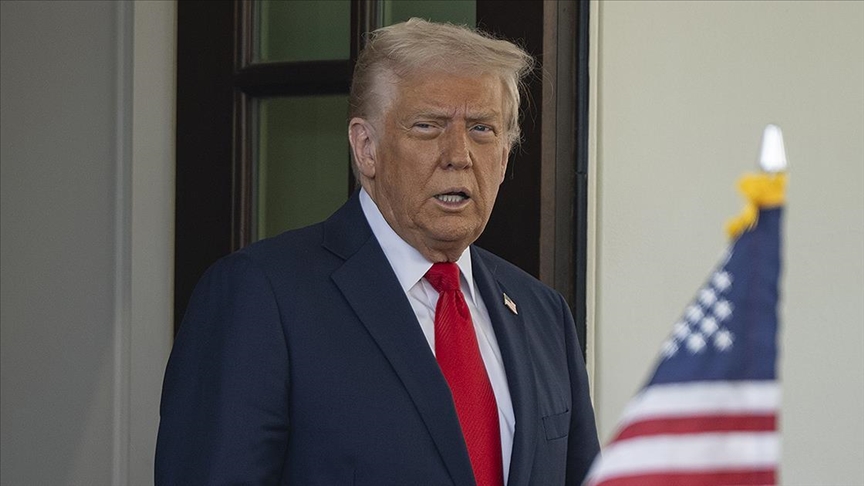BRUSSELS
The US and the EU may unite to form a tariff alliance against China through negotiations, a Brussels-based trade analyst told Anadolu.
Johann Weick said the US wants to bring jobs, especially in the manufacturing sector, back to the country, but he believes it will not work because President Donald Trump’s tariffs essentially will give rise to prices and the end consumer has to pay the high prices.
Weick noted that firms, when investing, expect predictability from their administrations, noting the 1930s trade protectionism and the following Wall Street Crash in the New York Stock Exchange, even though Trump insists tariffs provide an attractive environment.
He emphasized that the EU’s hydrocarbon energy resources are missing and it lacks a battle-hardened military component of its own, while the bloc’s willingness to buy more energy products does not fully satisfy Trump, as the EU on its own has few options to oppose the US on tariffs.
Trump, Putin on same agenda
Weick said Trump is planning to form “a geostrategic security alliance with Europeans against China at some point” to unite “the common cause” against Beijing and the president’s sudden move to pause tariffs for 90 days was “a bargaining tactic.”
He noted that Trump has had a long history of bargaining and negotiations, especially in the real estate industry, and the EU could benefit from negotiations at more technical levels instead of having direct contact with him at the head of state level.
Weick noted that EU Commission President Ursula von der Leyen is “too often at the forefront of the debate” and countries like France and Italy, which are in bilateral talks with Washington, make Europe look fragmented, which then strengthens Trump’s position.
“We need to recognize the arisen geopolitical and geostrategic shifts and realities,” said Weick. “Trump and Russian President Vladimir Putin basically have the same agenda — a Europe squeezed between the US and Russia.”
“Neither Trump nor Putin wants a self-assertive Europe that is economically and eventually deterrent-defensive military strong, between them,” he added.
Weick said the EU first said it would retaliate against Trump’s tariffs and then said it would not, which communicated to Washington that the bloc was open to negotiations. He noted that an alliance could be formed between the EU and the US against China to overcome tariff-induced problems.
“The only thing Trump definitely does not want is an economically-dominating and militarily strong China,” he said.
Weick mentioned that Trump will get what he wants in terms of trade and emphasized that the trade dispute between the EU and the US will be resolved at some point as both sides, with their long and deep history, need each other, while China will seek alternatives amid this new environment in which exporting products to the US has become difficult — a shift of focus to Europe may be on the agenda, as well as price-dumping.
Trump wants EU to buy US energy
EU Trade Commissioner Maros Sefcovic is in Washington for talks with senior officials, as he met Secretary of Commerce Howard Lutnick and Trade Representative Jamieson Greer.
US exports to the EU hit $602.8 billion and its imports from the EU totaled $378.1 billion, marking a trade surplus of $224.7 billion for the EU, as of last year. Trump is seriously bothered by the deficit the US runs with the EU.
The tariffs that include 70% of EU exports to the US can potentially generate $90.7 billion a year.
Trump wants the EU to buy US energy products in large amounts to avoid tariffs.
Meanwhile, the EU’s natural gas supply has been bottlenecked by the war in Ukraine and the bloc turned to liquefied natural gas (LNG), becoming the largest US LNG buyer in the last three years, but Trump is still not satisfied and he believes the EU can buy more.
Trump wants the EU to import energy products that reach $350 billion and EU officials are negotiating proposals to reach an agreement with the White House on fossil fuels during the 90-day tariff pause.

